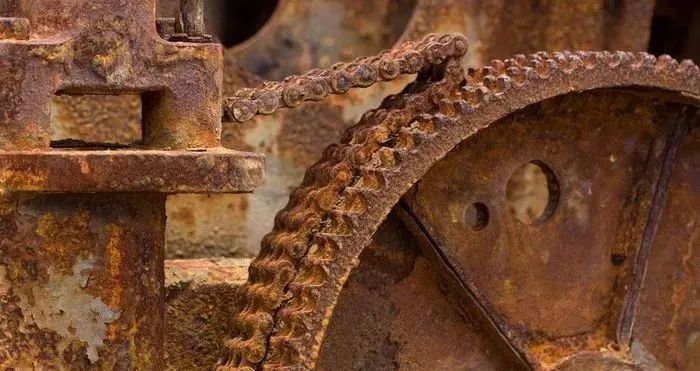
Privacy statement: Your privacy is very important to Us. Our company promises not to disclose your personal information to any external company with out your explicit permission.
Transparent hard film anti rust agent can quickly form a dry and transparent anti rust film on metal surfaces. The oil film is easy to dry, not sticky to the hands, has good adhesion, is easy to apply, has strong rust resistance, and the oil film is uniform, thin and transparent, maintaining the good appearance of mechanical products, beautiful and bright. Transparent hard film anti rust agent can be used as a medium to long-term anti rust treatment material for steel metal parts, cast iron, copper, aluminum, galvanized sheet and other metal materials.
The use of hard film anti rust oil as a pre-treatment method is very beneficial for improving the anti rust cycle of metal parts, simplifying operations, and saving pre-treatment costs. Some hard film anti rust oils can be thinly applied (15 μ Below m) and with excellent anti-corrosion performance (salt spray resistance time ≥ 120h), electroplated parts such as shafts, oil cylinders, hard pipes, pull rings, clips, and spring pins of engineering machinery products, as well as exposed machined surfaces, can be protected with hard film anti rust oil to improve product appearance quality and eliminate early rust problems of components.

Analysis of the protective properties of rust inhibitors
The performance comparison of several protective materials (hard film anti rust oil, soft film anti rust oil, and protective wax) is shown in Table 1. The test selected a tinplate (70mm) × 150mm), after polishing and surface cleaning, brush or spray a layer of anti rust material for testing and detection.
The adhesion test is based on the GB/T9286-1998 "Cross cut Test for Paints and Varnishes Film" to determine the adhesion level of anti rust oil. The adhesion of hard film anti rust oil can reach level 1 or above, and in fact, the adhesion of hard film anti rust agent on the substrate has a significant impact on the anti-corrosion performance of the anti rust agent.
The anti-corrosion performance results of rust inhibitors were obtained through experimental analysis from two aspects: salt spray resistance and atmospheric corrosion resistance. The salt spray resistance test shall be conducted in accordance with SH/T0081 "Salt Spray Test Method for Rust Preventive Oils". A cyclic corrosion test chamber shall be selected to evaluate the difference in rust resistance performance of rust resistant materials on metal surfaces in accordance with SH/T0217 "Evaluation Method for Rust Degree of Rust Preventive Oil Test Coupons". Atmospheric corrosion resistance testing refers to the inspection of the difference in rust resistance of rust resistant materials on metal surfaces in natural atmospheric environments according to SH/T0217. Table 1 shows that the anti-corrosion performance of hard film anti rust oil is significantly better than that of soft film anti rust oil, and it can achieve the anti-corrosion effect of protective wax.
Application in the construction machinery industry
Due to the fact that the anti-corrosion performance of some domestically produced galvanized and chrome plated parts cannot meet the increasingly high requirements for appearance anti-corrosion, or due to changes in surface treatment processes (such as using QPQ instead of chrome plating, Dacromet, nano alloy instead of galvanizing, etc.), or the addition of surface protection processes (such as adding hard film rust prevention oil protection, adding topcoat or varnish protection, etc.). These existing surface treatment methods not only have weak rust resistance, but also have relatively difficult wastewater treatment, making it difficult to change the surface treatment process. Suppliers are required to have corresponding process means and capabilities. Generally, manufacturers need to produce through third-party production, and the process guarantee ability is poor.
After assembly, the surface of the components may experience bumps and early rusting. Some users use the process of adding varnish or topcoat to solve short-term corrosion problems, but this process is suitable for use after product assembly or after overall painting, and is not suitable for use when components enter the factory (i.e. before assembly). Due to poor adhesion of the varnish or topcoat on the smooth surface, it can affect component assembly or cause paint film detachment after component assembly. However, some machined surfaces (exposed after assembly) may experience early rusting after prolonged assembly and debugging, making it difficult to handle the entire machine during painting.
November 08, 2024
April 26, 2024
April 26, 2024
Semi-synthetic water-based cutting fluid smelly foam rust discoloration and other 8 problems As an indispensable auxiliary material in modern metal processing, semi-synthetic water-based cutting...
Performance evaluation and application strategy of anti-rust oil: the way to ensure long-term stability of metal parts In the broad field of metal processing and storage, anti-rust oil is a key...
Anti-rust agent disclosure: The dual challenge of anti-rust and anti-emulsification properties In the world of metal processing and lubricating oil, the existence of rust inhibitors is like a patron...
Preparation method of anti-rust emulsion oil for ultra-fine copper wire drawing and strategy for improving anti-rust and cleaning performance I. Introduction When high-speed wire drawing, the...
Email to this supplier
November 08, 2024
April 26, 2024
April 26, 2024
Send Inquiry

Mr. James
Tel:0086-371-58651986
Fax:
Mobile Phone:+86 13783582233
Email:sales@cn-lubricantadditive.com
Address:No.11 Changchun Road, High-Tech Zone, Zhengzhou, Henan
Related Products List
Mobile Site


Privacy statement: Your privacy is very important to Us. Our company promises not to disclose your personal information to any external company with out your explicit permission.

Fill in more information so that we can get in touch with you faster
Privacy statement: Your privacy is very important to Us. Our company promises not to disclose your personal information to any external company with out your explicit permission.